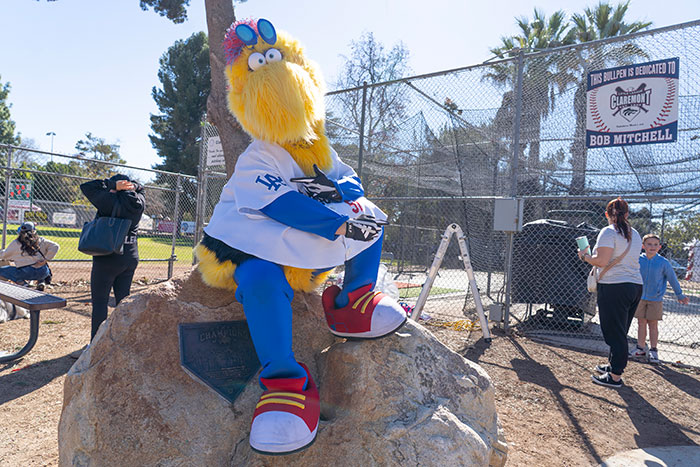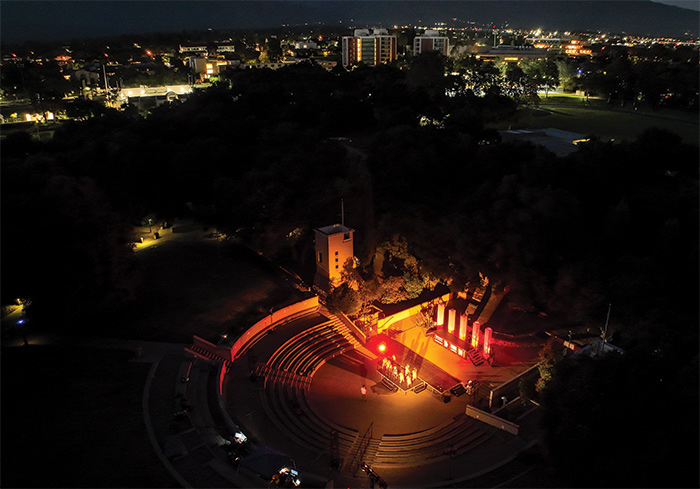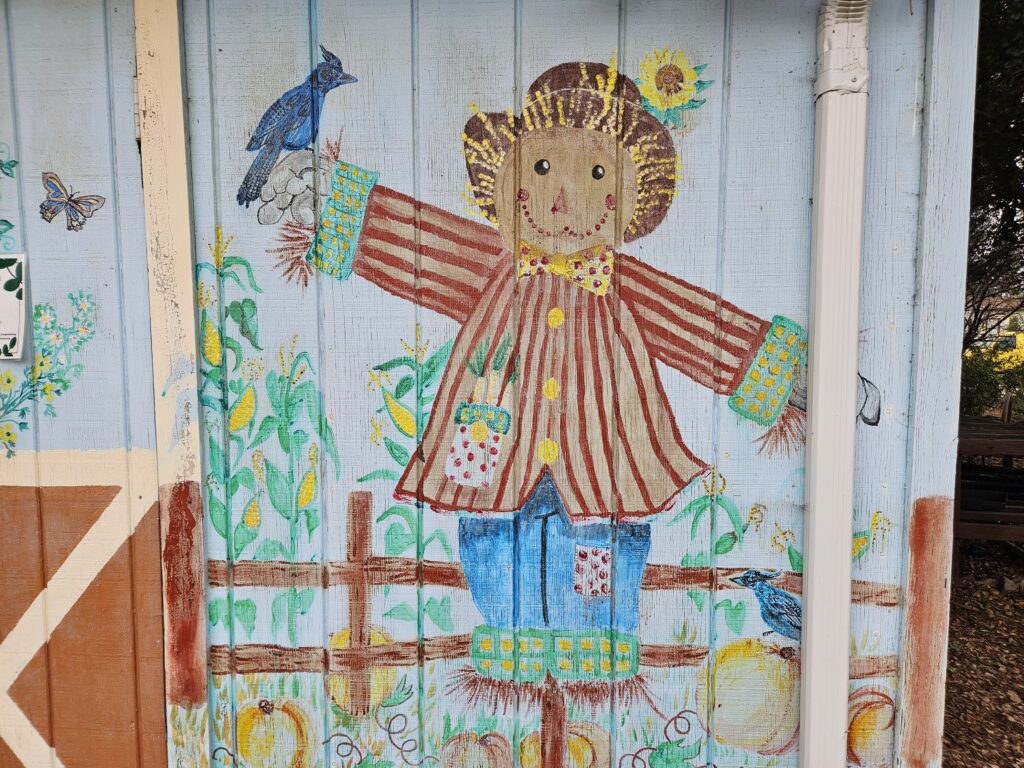Professor sees tough challenges veterans face after returning home
Citrus College history professor Bruce Solheim has a big heart for returning veterans.
A veteran himself, Mr. Solheim discovered the extremes of post-deployment difficulties when his brother returned from the Vietnam War battling post-traumatic stress disorder and a host of physical ailments triggered by contact with the toxic herbicide Agent Orange. Today, his brother is permanently disabled and fighting a slow-moving leukemia.
When Mr. Solheim first instituted a survey course on the Vietnam War at Citrus College a number of years ago, his class began to attract veterans who had seen combat in Persian Gulf War. He speculates that veterans see his course as a safe way to process their wartime experiences through the lens of a war whose impact is softened by distance and history.
Some of these veterans showed unique vulnerabilities, including psychological trauma and general difficulty navigating post-military life. With the ongoing conflicts in Afghanistan and Iran—where many members of the US armed forces see multiple deployments as opposed to the one tour by most Vietnam veterans—he has only seen these issues worsen.
For example, he noted, returning veterans have an unemployment rate of 30 percent. One or 2 members of the US military on active duty kill themselves each day. The suicide rate among veterans is worse—a heartbreaking 18 a day.
“I started seeing students who were layering multiple traumas on top of each other without healing,” Mr. Solheim said. “You’ve got men and women who have done 3, 4, 5 tours of duty. It’s beyond what you can imagine. People get used up.”
Mr. Solheim and the staff of the Citrus College Veteran’s Center do their best to troubleshoot for student veterans who are floundering. In some cases, they’ve found shelter for students who have become homeless, either living on the street or couch-surfing. Often, they connect veterans impacted by PTSD and other mental issues with a campus counselor and the mental health system available via the VA hospital. There are many resources out there for men and women returning to civilian life. However, veterans may need help navigating the system and advocating for themselves, Mr. Solheim said.
With the help and inspiration of 2 friends, Ginger De Villa-Rose—now Mr. Solheim’s wife—and Manuel Martinez of the East Los Angels Veteran’s center, he initiated a class at the Glendora community college known as Boots to Books.
Mr. Solheim and his co-collaborators put the course on the fast track by piggybacking Boots to Books onto an existing college counseling course. Along with imparting general college success strategies, he made sure his course dealt with veteran-specific issues like post-traumatic stress disorder (PTSD) and how to access the health and financial aid benefits set up under the GI Bill.
Many students have benefited from the Boots to Books class, which draws about 45 students per semester, Mr. Solheim said.
“When you have one or 2 vets in a class, they’re pretty quiet,” the professor said. “When you have 4 or 5 here or more, they come to life. They start talking about things in class and other students hear more about what war’s about. They know it’s real.”
Mr. Solheim likes to bring combat veterans into his history courses a well as his Boots to Books class to share their firsthand experiences. He got to know one of these veterans, Carl Ferguson, particularly well after the Vietnam vet made a number of presentations for Citrus students. While Carl limited his classroom talks to his combat experiences, Mr. Solheim eventually learned that Carl’s story had another, personally wrenching facet.
As if coming home from the Vietnam War with debilitating mental scars and to an atmosphere openly hostile to returning soldiers weren’t enough, Carl had another trauma to endure. He was gay, a realization that only came to him once he was engaged as an infantryman in the military. After learnng of his sexual orientation, his parents rejected him.
While Carl did his best to battle his ensuing depression, it became more and more difficult. In the wake of the terrorist attacks of September 11, as the US invaded Afghanistan and headed inexorably towards the invasion of Iran, his sadness turned to despair. He told friends he “didn’t want to see another generation lost.”
In 2002, Carl committed suicide. Mr. Solheim was at his funeral, struggling to make sense of the loss of a friend, when a distant relative presented him with one of Carl’s personal effects. It was a Bronze Star, a prestigious medal awarded for valor during combat. Mr. Solheim had no idea that his classroom visitor had been presented with one of the highest decorations awarded by the US military.
It hit Mr. Solheim hard. Not only had he lost a friend. The world had lost a hero. With that realization, the professor’s dedication to making a difference in the lives of student veterans increased. So did his artistic aspirations. Mr. Solheim, who has authored a number of books, had already told his own story in his biographical The Vietnam War Era: A Personal Journey. Now he felt compelled to tell Carl’s.
Mr. Solheim began writing a screenplay, his first, drawing on memories of Carl and on 6 hours of letters recorded via audiotape during his deployment. Mr. Solheim, who enlisted in the military in 1978, had missed the Vietnam War by a few years.
“I got a lot of insights. You hear Carl talking about what he was doing and you could hear artillery fire in the background,” he said.
When Citrus drama professor Cheri Brown heard about Mr. Solheim’s endeavor, she suggested he turn the story into a play. Seeing it as a great way for the history and performing arts departments to collaborate, Ms. Brown mentored Mr. Sohleim on playwriting.
The result is “The Bronze Star,” a story he has described thusly: “Ranging from the Vietnam War until today’s global war on terror, the ‘Bronze Star’ is a play about a heroic, young, gay soldier looking for acceptance, peace, love, and purpose who is traumatized by war and rejected by his family and an uncaring and intolerant society.”
Last year, Mr. Solheim, Ms. Brown and students collaborated in workshopping and performing selected scenes from “The Bronze Star.” This year, they are taking it to the stage, with a student production produced by Ms. Brown and featuring 37 actors, 6 of whom are veterans. The play will be performed in Citrus College’s Little Theater, with shows on November 9, 10, 16, and 17 at 8 p.m. and matinees on November 10 and 11 at 2 p.m.
Shows for November 9 and 10, which just precede Veteran’s Day, are already sold out. For tickets and information, visit www.haughpac.com or call (626) 963-9411.
Mr. Solheim says he is delighted with the support Citrus College has shown for his production and for returning veterans as a whole. It’s a worthy effort, he expressed, adding that providing for those who have seen combat and are acclimating to civilian life must be ongoing and universal.
“It’s a societal thing. It’s very cost-beneficial to help someone right away.
—Sarah Torribio
storribio@claremont-courier.com








0 Comments